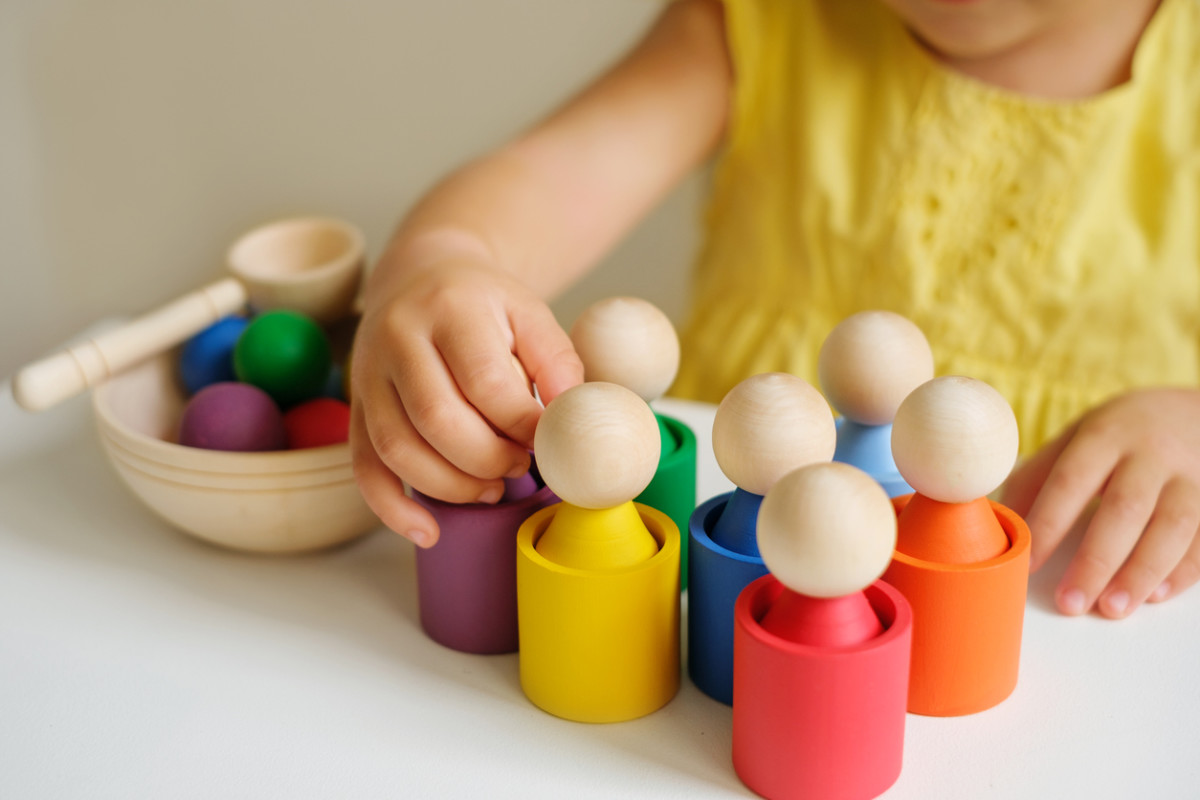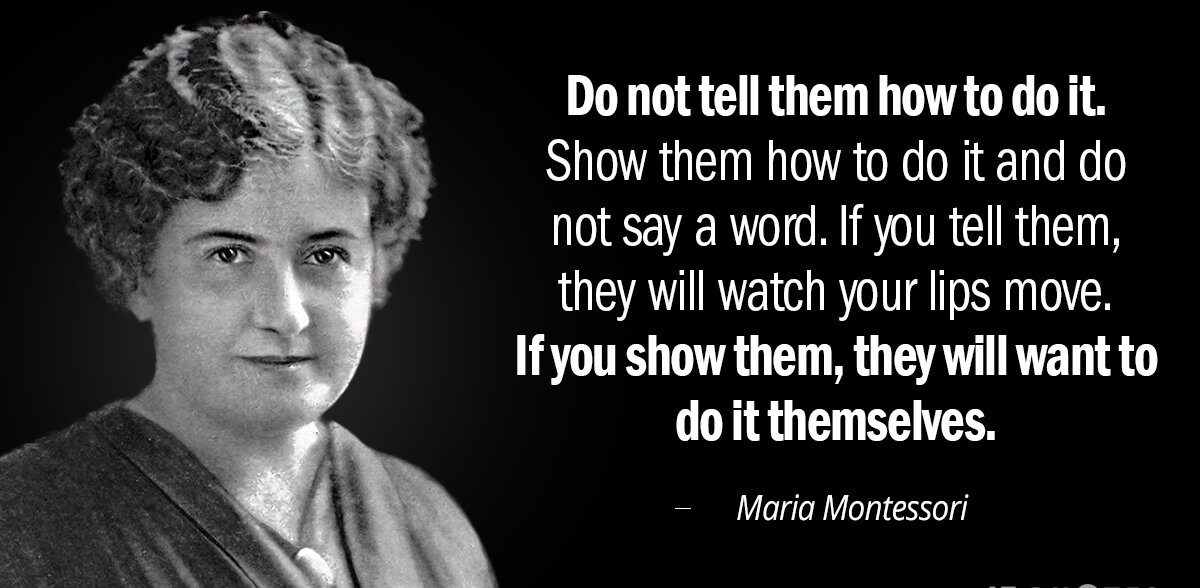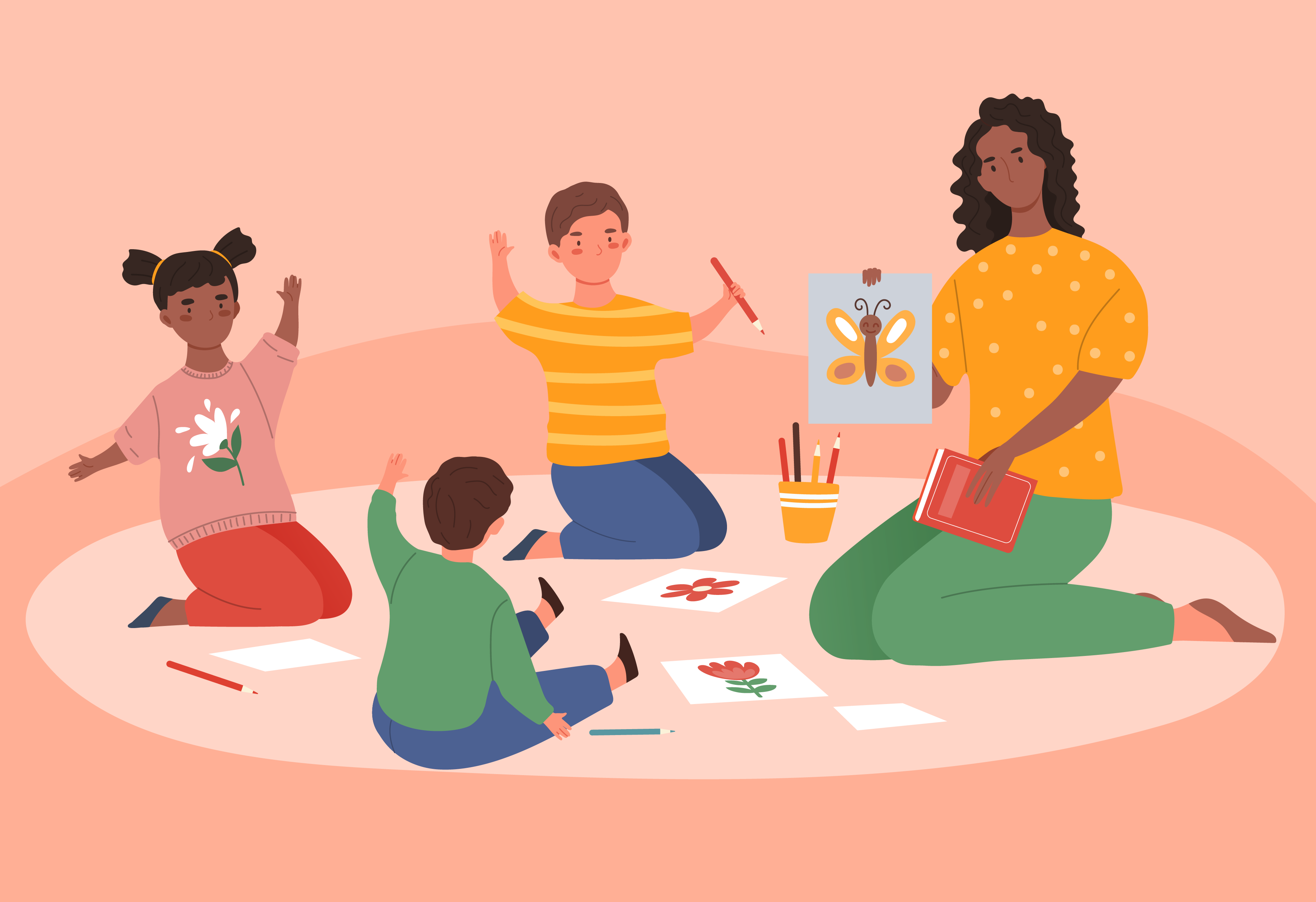Biography
An Introduction to Montessori Method: Pros and Cons of Montessori Education

The process of early childhood education commences at birth and extends up to the age of eight, and plays a pivotal role in the child’s physical, intellectual, and social development. Hence, the significance of early childhood education cannot be overstated, as it equips children with skills that are instrumental in their future schooling and careers.
Choosing the right type of education for one’s children is a daunting and stressful task. The search for the optimal education system depends on various factors such as teaching methodologies, the educator’s role, and classroom facilities. When considering Montessori education, parents may have misconceptions or misunderstandings.
In the United States, there are approximately 3000 Montessori schools, which have had a considerable impact on providing successful education.
What is Montessori Education?
The Montessori approach to education targets all aspects of a child’s development, including intellectual, physical, social, and emotional domains. This is achieved through a personalized learning experience that caters to a child’s individual interests, needs, and independence, thereby facilitating exploration, learning, play, creation, and discovery.
The Montessori education system is anchored on scientific observations of children, starting from infancy to adulthood. Its curriculum is designed to allow children to pursue their own projects and select what they want to learn based on their interests. The approach is grounded on principles that integrate movement and cognition, which have been shown to promote positive development.
Some of the exceptional elements of the Montessori approach include preparing children to be self-reliant, educating the whole child, hands-on learning, extended activity periods of up to three hours, mixed-age classrooms, skill-based materials, and curriculum.
The Origin of Montessori Education: Dr. Maria Montessori
Montessori education has gained immense popularity in recent times. It is a unique educational philosophy that emphasizes self-directed learning, respect for the child’s individuality, and the importance of the child’s environment. The Montessori approach has proven to be effective and is now implemented in schools worldwide. But where did this method originate?
Maria Montessori, the founder of Montessori education, was born in Chiaravalle, Italy, in 1870. She was the first woman in Italy to receive a medical degree and had a keen interest in child development. In 1901, she was appointed as the director of a school for children with developmental disabilities in Rome. It was here that Montessori began to develop her educational philosophy, which would later become the Montessori method.

The Montessori method was first introduced to the United States in 1912, and it quickly gained popularity. Montessori schools began to open across the country, and the method was adopted by many educators. However, during the 1920s and 1930s, the popularity of Montessori education began to decline, and many Montessori schools closed.
It wasn’t until the 1960s and 1970s that Montessori education began to experience a resurgence in popularity. Parents and educators were drawn to the method’s emphasis on the child’s individuality and the importance of hands-on learning experiences. Today, there are Montessori schools in over 100 countries, and the method has been adapted for use in both public and private schools.
Montessori Theory of Child Development
Montessori observed that children learn best through hands-on experiences that are meaningful to them. She believed that children possess an innate desire to learn and that it is the educator’s responsibility to help foster this desire. Montessori designed a classroom environment that would allow children the freedom to explore and learn at their own pace. She also developed materials that would appeal to the child’s senses and allow them to learn through their own experiences.
The Montessori approach emphasizes the importance of the child’s environment in their learning process. The classroom is designed to be aesthetically pleasing, with natural materials and child-sized furniture. The teacher acts as a facilitator, guiding the child towards activities that are appropriate for their level of development. The Montessori method also emphasizes the importance of mixed-age classrooms, which allows younger children to learn from older children and older children to take on leadership roles.
Montessori education is a unique and effective educational philosophy that emphasizes self-directed learning, respect for the child’s individuality, and the importance of the child’s environment. Maria Montessori’s innovative approach to education has stood the test of time and continues to inspire educators around the world.
Pros and Cons of Montessori Education
Pros of Montessori Education
Children are empowered to explore, play and learn at their own pace without any external pressures from teachers or parents in a Montessori education. The child is at the center of the learning and experience, with a wide range of learning materials available to choose from, explore and learn. Freedom of movement is encouraged in the classroom, with guidance only provided by the teacher when necessary.
1. Child-Centered Learning
One of the key tenets of the Montessori method is that children are capable of directing their own learning. In a Montessori classroom, children are given the freedom to choose their own activities and work at their own pace. This approach allows children to develop a strong sense of independence and self-motivation, which can serve them well in all areas of life.
2. Individualized Instruction
In a Montessori classroom, teachers work with each child individually to create a customized learning plan. This means that children are able to work at their own level and progress at their own pace. This individualized approach helps ensure that each child is challenged and engaged in their learning, which can lead to better academic outcomes.
3. Focus on Practical Life Skills
In addition to traditional academic subjects like math and reading, Montessori education emphasizes practical life skills like cooking, cleaning, and caring for the environment. By teaching children these important skills, Montessori schools help prepare them for life outside of the classroom.
4. Hands-On Learning
The Montessori method emphasizes hands-on learning and exploration. Children are encouraged to use all of their senses to explore the world around them, which can lead to a deeper understanding and appreciation of the world. This hands-on approach can also help children develop strong critical thinking and problem-solving skills.
5. Small Class Sizes
Montessori classrooms are typically small, with low student-to-teacher ratios. This allows for more individualized attention and support for each child. It also creates a strong sense of community and collaboration among students, which can help foster positive social skills and relationships.
6. Emphasis on Creativity
Montessori education places a strong emphasis on creativity and self-expression. Children are encouraged to express themselves through art, music, and other creative outlets. This focus on creativity can help children develop a strong sense of self and confidence in their abilities.
7. Preparation for the Future
Montessori education is designed to prepare children for success in all areas of life, not just academics. By emphasizing independence, self-motivation, practical life skills, and creativity, Montessori schools help prepare children for the challenges and opportunities of the future.

Cons of Montessori Education
Montessori education is a popular approach to teaching young children that has been around for over a century. Developed by the Italian physician and educator Maria Montessori, the method emphasizes independent learning and self-directed activity, with a focus on developing a child’s natural curiosity and love of learning. While Montessori education has many advantages, there are also several drawbacks that parents should be aware of before deciding whether it is the right choice for their child.
1. Limited socialization opportunities
One of the biggest drawbacks of Montessori education is that it may not provide enough socialization opportunities for children. Unlike traditional schools, where students are grouped together by age and spend most of their time in a classroom with a teacher, Montessori classrooms are multi-age and emphasize individual work. While this can be beneficial for some children, it may also mean that they miss out on the socialization and peer interaction that is important for their social and emotional development.
2. Limited structure and guidance
Another potential drawback of Montessori education is that it may provide limited structure and guidance for children. In Montessori classrooms, children are encouraged to explore and learn at their own pace, without much direct instruction or guidance from teachers. While this can be beneficial for children who are self-motivated and independent, it may not be effective for children who need more structure and guidance in their learning.
3. Limited emphasis on academic skills
Montessori education places a strong emphasis on experiential and hands-on learning, which can be great for developing a child’s creativity and problem-solving skills. However, some parents may be concerned that Montessori education does not place enough emphasis on academic skills such as reading, writing, and math. While Montessori schools do teach these skills, the approach may not be as structured or comprehensive as in traditional schools.
4. Limited opportunities for extracurricular activities
Montessori education is primarily focused on academic learning, and as a result, there may be limited opportunities for extracurricular activities such as sports, music, or art. While some Montessori schools do offer these activities, they may not be as well-developed or comprehensive as in traditional schools.
5. Limited availability and high cost
Finally, one of the biggest drawbacks of Montessori education is that it may not be readily available or affordable for all families. Montessori schools tend to be smaller and more expensive than traditional schools, which can make them inaccessible for many families. Additionally, there may not be a Montessori school in every community, which can make it difficult for parents to choose this option for their child.
Final Words:
The Montessori method, which was founded by Maria Montessori, is a highly effective teaching system for children, as it focuses on providing them with the materials and activities they require to flourish. It has been in use for over a century and has gained immense popularity worldwide. The approach is rooted in the notion that children learn best by observing and experiencing the world around them.
The Montessori approach is based on the developmental theory of children, which recognizes that every child is unique and has specific needs that must be met. As children grow and develop, their requirements change as well. Therefore, the method aims to foster children’s confidence, independence, responsibility, and creativity at each stage of development.
Parents who are interested in providing their children with the best possible learning experience should consider this approach over rote learning. When selecting a school for their child, they should weigh the advantages and disadvantages of the environment based on their preferences.
>> Read more: How can Montessori education facilitate the growth of cognitive abilities in kids?
